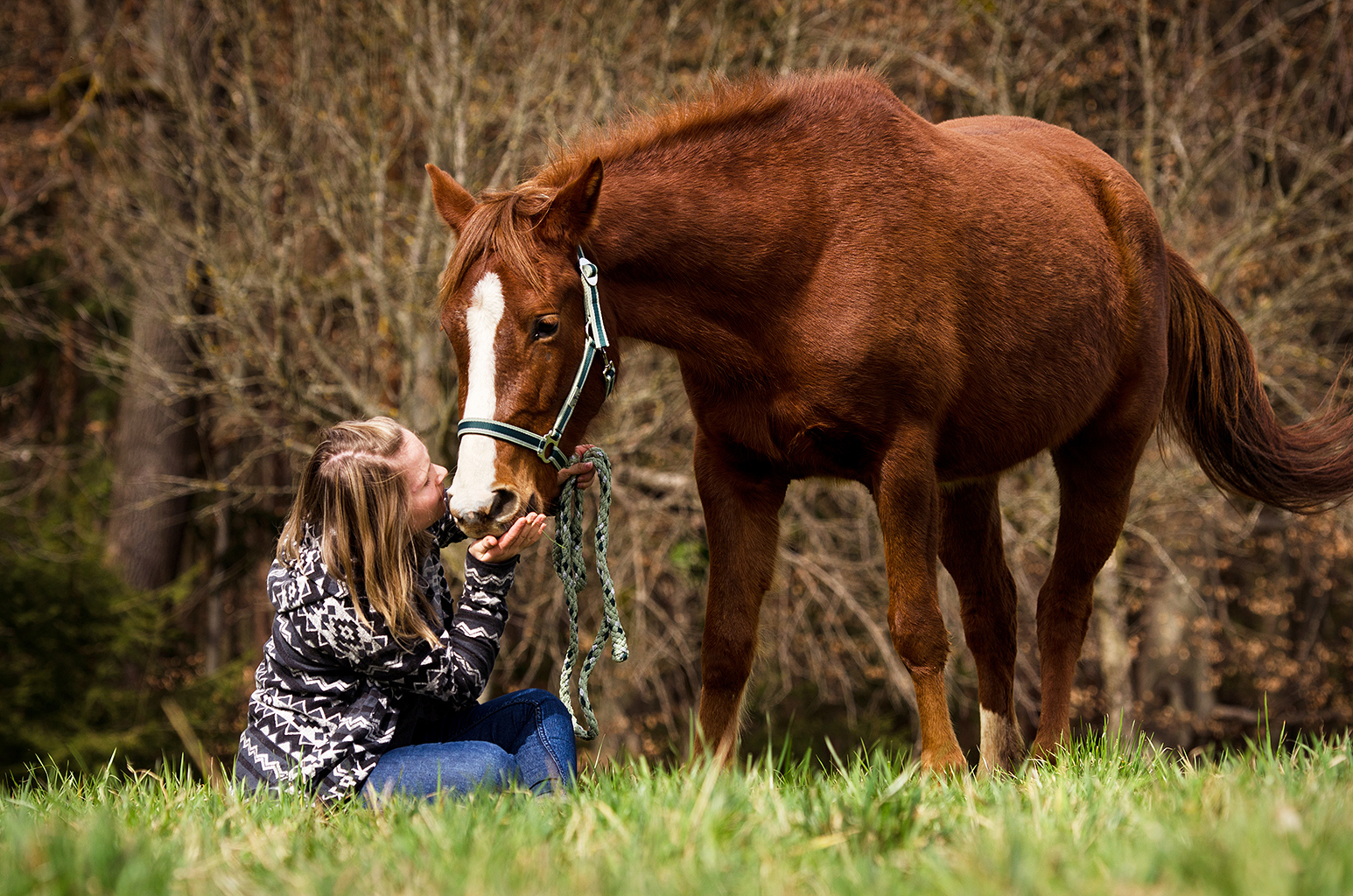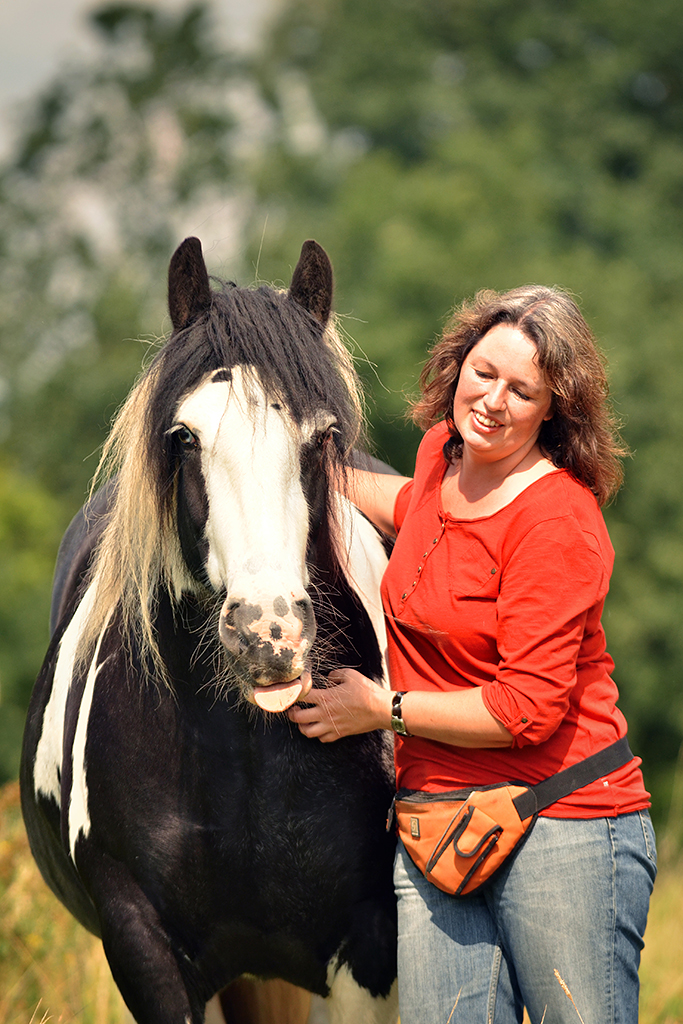
A plentiful source of misunderstandings
It can be beneficial to understand possible sources of typical misunderstandings in order to truly connect with horses, to meet them on an equal footing, and to discover your unique common path. One difficulty many persons encounter is due to an issue we often do not even recognize as such: Humans and horses as biological entities have different paces of life, and there are individual differences in our perception of time as well. All the minor activities and social interactions of a horse throughout the day often appear unspectacular to us humans, and we perceive them almost as in slow motion. From our point of view, horses like to stand around for ages, and they aimlessly look around, spend time breathing together or enjoy themselves wandering about grazing with their companions.
Lack of patience
One typical consequence of this is a conflict of interests between humans and horses. Human beings constantly want something exciting and stimulating to happen, and we are bored when watching the same scenes over and over again because they have little significance to us when they are repeated. A horse’s daily life appears rather boring to many of us due to its slow pace. In comparison, when we think about meeting a vivacious ferret we understand how it feels to interact with a being whose pace of life is much more rapid than ours. The high-spirited creature seems to be hyper and frantic, and we are hardly able to keep track of all the action that is going on. From the ferret’s point of view, we humans react in slow-motion, and the adventurous, lively critters probably get bored easily with us.

Time travel
Only when we become aware of the fact that horses and humans move within completely different streams of time, we are able to decipher their daily life and routines. A little thought experiment might help to make this even clearer. There is hardly anything more boring, even for horse lovers, than watching horses graze. Yet, what happens if you watch the same scene in fast forward. The sluggish pace of the horses’ routine changes, and we almost have the feeling of being invited to a horse party: A couple of good friends put their heads together for a chat while stealing glances at the new arrivals. A sudden movement triggers cheerful action among some while others spend their time jostling, threatening, and accosting in a playful manner.
At the party
A Haflinger girl is feeling thirsty and walks over to the trough when some of the other “guests” accompany her chattering with each other. On the way to grab a drink some of the youngsters embark on a running game. The old timers are rolling their eyes upon such exuberant behavior, and doze off in the wind, simply breathing, nibbling a few mouths full of grass every now and then, and listening to the other party people. The horses’ “boring” life appears a lot more diverse and exciting to us humans if we compress a whole afternoon at the pasture into five minutes.
Becoming aware of one’s own perception of time
Our awareness of how we perceive and deal with time, and our awareness of our personal temporal comfort zone contributes to a better understanding of our horse’s perception of time. Only then it is possible to create a common time zone where the other’s pace of life is appreciated, and where we do not act like ferrets from the horse’s point of view. We will be able to recognize the magic of being a horse only after we stop perceiving the normal and natural daily routines of a horse as “boring” or “monotonous”, and recognize that they are based upon a different perception of time. What happens when we take our time is the Discovery of Slowness.
Marlitt Wendt & Conny Ranz


